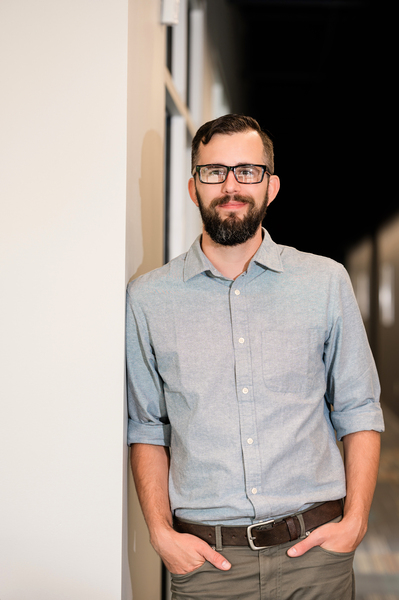


Ryan Swenka lives and works in Coralville with his wife, Alannah, and their three dachshunds, Pretzel, Nacho, and Lemonade Shake-Up. Ryan volunteers with Big Brothers Big Sisters where he and Alannah have been matched with their Little for over 5 years. In his free time, Ryan enjoys games of all sorts, playing in the backyard with his dogs, or helping on set in independent films.
While serving as mayor, I would prioritize addressing food and housing insecurity, expanding public transit options within our community, and protecting the members of our community from increasingly intrusive actions from the state and federal government.
Coralville's debt is a very large issue that we are facing. I believe that the mayor and city council should look towards smaller, more incremental projects and maintenance of our current services as we tackle this debt. Large projects that are a big risk is part of why we have such a large amount of debt per capita.
I would urge the council to identify smaller projects that can be completed across our city, ensuring that our current structures and services are maintained. Large projects can also be important, but need to be very carefully considered.
Array
The city council can look to changes in zoning that may allow for more medium density, mixed-use development. Addressing the "missing middle" in housing can fix many of our problems while expanding access to housing and walkable neighborhoods.
If the local option sales tax ballot item passes in November, the council should look for project opportunities for additional affordable housing and revitalization.
While I am generally opposed to regressive taxes, such as a sales tax, the needs of a city are complex. I support LOST because it gives us some local control and funding in a way not currently utilized. With a portion aimed at tackling issues of affordable housing, we can also use this source of funding for some of our public spaces: the first big project being the new recreation center. My hope is that going forward we can focus on maintaining what we have rather than building anew, and these funds can help ensure we aren't as reliant on funding options from the state or federal levels.
I have been excited about the possibilities presented to us regarding inter-city travel, particularly by rail. I believe that road expansions, like what we are seeing with Interstate 380, are ultimately a waste of resources. I would love to see more collaboration to bring reliable, regular rail travel between our downtown spaces to reduce road wear-and-tear, congestion, and general car-dependency that we currently see. In a similar vein, a better network of bikable paths can greatly expand our ability to travel without the prohibitive costs of car ownership.
As mayor, I would work to coordinate with the necessary public and private sector groups to explore these options further, proposing adjustments to zoning and planning as necessary to help promote these as viable options.
I hope to increase our public engagement and help bring more accountability to our elected officials. I want to proactively extend invitations to groups that may be interested in upcoming agenda items in order to bring them into the conversation before big decisions are made or contracts are signed.
We aren't a big city, nor is our council vast: it will require us to work together for a solution. I am not afraid of friction and working with those whose visions differ from mine. I believe open and earnest discussion along with engaging the community more fully will drive our decisions and will help overcome these conflicts, but I will not compromise on human rights.
I am very glad that Coralville publishes our meeting agendas on our website, as well as a video recording and meeting notes for others. This allows those that may not have been able to attend the meetings to hear the input of their neighbors.
Things like zoning regulations and tax incentives can greatly affect how businesses choose to invest and how developers build out a space. Our last community plan was set in 2014: I believe that the time has come for a new plan and vision for the future of Coralville.
When discussing tax incentives, I urge the importance of well-tested business plans, community input, and contracts: proof that investments of this type have worked, that they are the right fit for Coralville, and that if certain conditions are not strictly kept, our taxpayers aren't left with nothing to show for the investment.
While I hope to help Coralville attract business that improve our quality of life and help us economically, I don't believe the route for that is competing with our neighbors in a race to the bottom.
